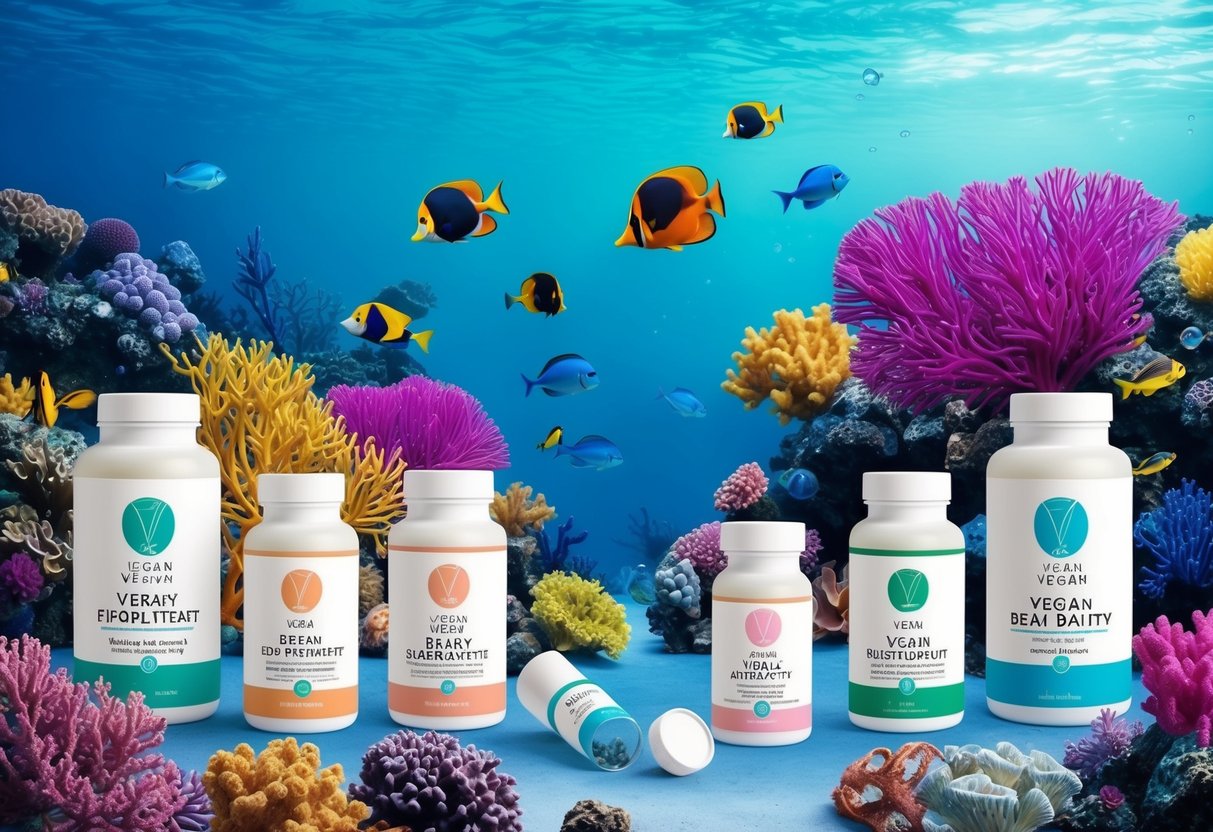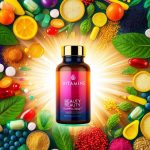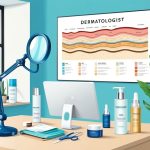Best Beauty Supplements for Radiant Skin, Hair, and Nails: What Really Works
Choosing the Right Supplement Regimen
Finding the optimal supplement regimen involves considering individual needs, understanding proper usage, and acknowledging possible interactions. Personalization is essential, as everyone’s skin, hair, and nail requirements differ due to genetics, lifestyle, and health status.
Assessing Individual Beauty Needs
A tailored beauty routine begins with recognizing unique concerns, such as dry skin, brittle nails, or thinning hair. Common supplement ingredients like biotin, collagen, vitamin C, and omega-3 fatty acids can address specific beauty goals.
For instance, while biotin targets nail strength, collagen supports skin elasticity and repair. Consulting a dermatologist or healthcare professional ensures selected supplements are appropriate, especially for anyone with underlying conditions or on medications.
It’s also useful to review dietary habits before starting a regimen. Individuals with balanced diets may not need as many supplements as those with dietary restrictions or deficiencies.
A self-assessment can help narrow down the most effective options, whether for anti-aging benefits, repairing damage, or boosting natural glow. Identifying objectives, such as reducing hair shedding or brightening complexion, shapes the right combination of nutrients for optimal results.
Timing and Dosage Recommendations
Supplements for skin, hair, and nails should be taken according to label directions and individual health considerations. Typical dosages vary: biotin is often recommended at 2,500–5,000 mcg daily, while collagen peptides range from 2.5–10 grams depending on desired benefits.
Always defer to professional guidance for best results. Certain supplements, like fat-soluble vitamins A, D, and E, are best absorbed with meals containing dietary fat.
Collagen and vitamin C can be taken together to support collagen synthesis. Supplement timing can sometimes affect absorption or minimize the risk of stomach upset.
It’s suggested to introduce one new supplement at a time into a beauty routine. This approach allows for monitoring reactions and evaluating benefits.
Consistency is key—most supplements, such as those for improving skin health, require at least 4–12 weeks of daily use to show visible results.
Potential Interactions and Safety Concerns
Before adding new supplements to a daily routine, it is important to assess possible drug or nutrient interactions. For example, excessive vitamin A intake may cause toxicity, while high doses of vitamin E could interfere with blood-thinning medications.
Individuals with medical conditions or who are pregnant should consult their physician prior to use. Supplements should be sourced from reputable brands with third-party testing to ensure quality and purity.
Adverse effects, such as gastrointestinal discomfort or allergic reactions, may occur, especially with excessive use. Routine monitoring—such as tracking changes in hair, skin, and nails—helps identify negative effects early.
If combining multiple supplements, staying within recommended dosages for each ingredient is critical for long-term beauty and overall health benefits.
Integrating Supplements With Skincare and Lifestyle
Combining beauty supplements with a well-tailored skincare routine and healthy lifestyle choices makes a noticeable difference in the look and feel of skin, hair, and nails. Supplements are not a substitute but can complement a daily regimen to deliver optimal beauty benefits.
Synergy With Skincare Routine
Integrating supplements, such as collagen peptides, biotin, and vitamin C capsules, with a consistent skincare routine can offer enhanced results for skin tone, hydration, and elasticity. Using a daily moisturizer with SPF, gentle cleansers, and targeted serums helps protect and nourish the skin from the outside while supplements work from within.
Timing can also play a role. Taking certain vitamins with meals may aid absorption, while topical skincare works best after cleansing and before applying heavier creams.
Layering skincare products appropriately allows key ingredients to penetrate, while supplements support deeper skin health over time. Supplements rich in antioxidants support the effectiveness of serums, especially when addressing visible signs of aging or dryness.
For best results, users should take recommended dosages and avoid over-supplementing. Emphasizing quality and consistency with both internal and external treatments often produces more radiant, resilient skin.
Diet and Lifestyle Factors for Maximum Results
A balanced diet rich in leafy greens, healthy fats, fruits, and lean proteins is essential for healthy skin, hair, and nails. These foods provide vital nutrients that supplements may only partially supply.
Drinking sufficient water every day maintains hydration. This supports both the action of supplements and the effectiveness of a proper skincare routine.
Regular exercise boosts circulation, delivering nutrients more efficiently to the skin and aiding in toxin removal. Limiting sugar, refined carbs, and processed foods can help minimize breakouts and improve skin tone.
Adequate sleep and stress management are also important. These lifestyle factors have a direct effect on the look and resilience of the skin.
For additional recommendations on combining supplements and lifestyle for skincare, see these beauty supplement guidelines.
Special Considerations: Vegan, Marine, and Other Supplement Forms

The effectiveness and suitability of beauty supplements often depend on their source and how they are processed. Key differences exist between vegan, marine, and animal-derived ingredients, which are crucial for making informed supplement choices.
Vegan and Plant-Based Beauty Supplements
Vegan and plant-based beauty supplements are formulated without animal ingredients, making them suitable for those following plant-based diets. These products often focus on supporting collagen production using nutrients like vitamin C, amino acids, and botanical extracts rather than containing actual collagen.
Plant-based supplements claim benefits for skin elasticity and hair strength, but they work indirectly by providing building blocks and cofactors rather than collagen itself. Unlike animal-based collagen, vegan collagen supplements typically use ingredients such as bamboo silica, biotin, and certain fermented yeast strains.
Some vegan collagen builders include added antioxidants and minerals for enhanced support. Reviews suggest that while vegan options support skin and nail health, they may not yet match the direct structural benefits attributed to animal collagen supplements.
For more details, see the discussion on the effectiveness of plant-based collagen.
Marine vs Bovine Collagen
Collagen supplements mainly use either marine (fish-derived) or bovine (cow-derived) sources. Marine collagen is rich in type I collagen, which is the primary collagen in human skin.
It is prized for its smaller peptides, which are thought to be more easily absorbed by the body. Bovine collagen, by contrast, supplies both type I and type III collagen, supporting skin, hair, nails, and joints.
Some users prefer marine collagen due to concerns about sustainability and fewer allergens. Others choose bovine sources for wider availability and cost-effectiveness.
Both types offer proven support for skin hydration, elasticity, and wrinkle reduction. Marine collagen is often considered a better option for pescatarians and those seeking maximum skin benefits.
Formulation Differences and Bioavailability
The form and processing of beauty supplements significantly impact how well they are absorbed and utilized by the body. Hydrolyzed collagen, commonly found in both marine and bovine supplements, is broken down into smaller peptides that are more bioavailable, meaning they are more readily absorbed.
Vegan supplements rely on different active compounds—amino acids, vitamins, and minerals—that facilitate the body’s own collagen production. However, their bioavailability can vary based on formulation and the specific combination of nutrients included.
Delivery methods, such as capsules, powders, and liquids, also affect absorption. Some studies indicate that liquids may offer the fastest uptake.
Reading product labels for hydrolyzed, easily digested ingredients and reviewing third-party testing ensures better results. For a closer look at formulation and supplement options, check lists of recommended collagen supplements.



